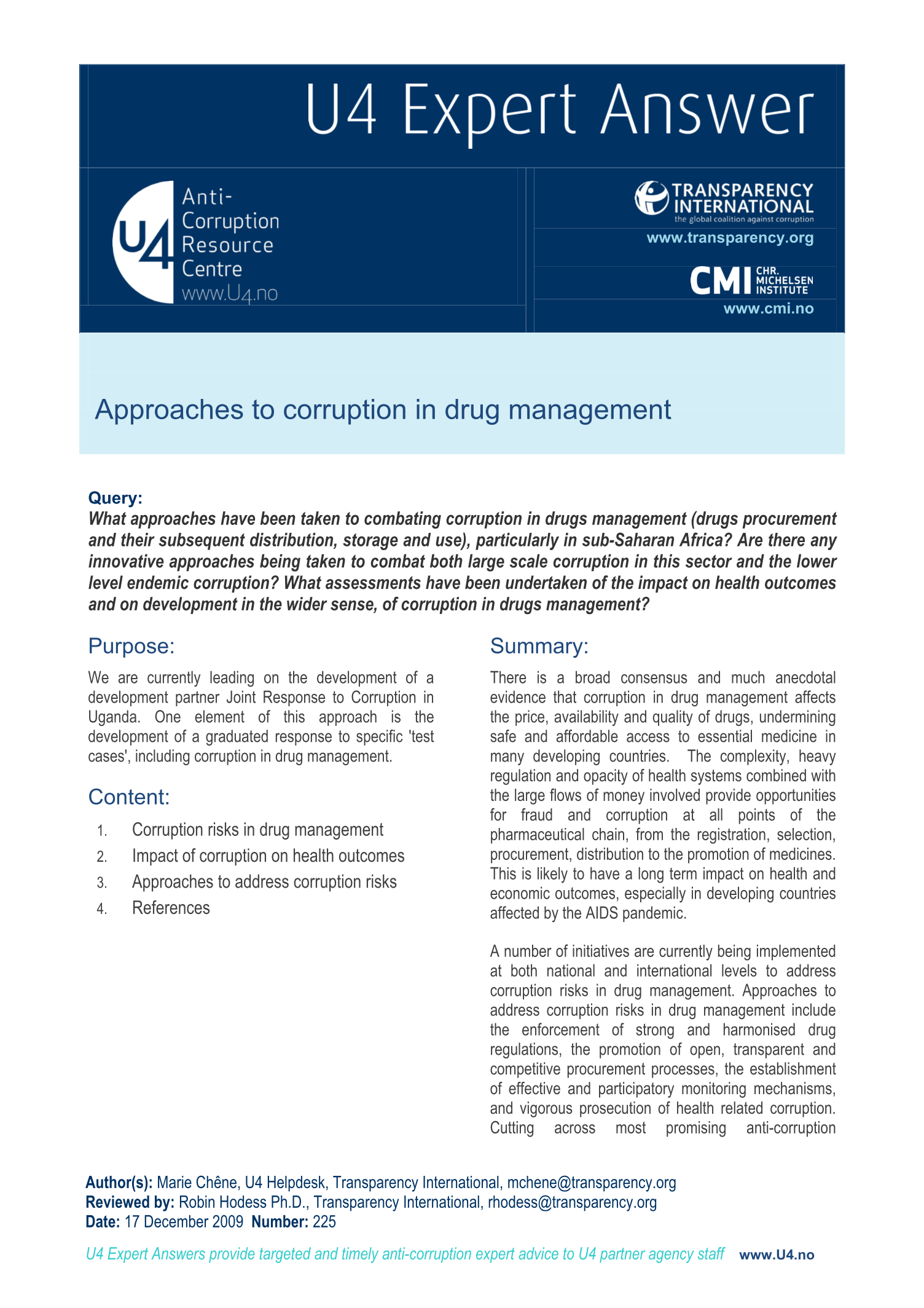U4 Helpdesk Answer
Approaches to corruption in drug management
There is a broad consensus and much anecdotal evidence that corruption in drug management affects the price, availability and quality of drugs, undermining safe and affordable access to essential medicine in many developing countries. The complexity, heavy regulation and opacity of health systems combined with the large flows of money involved provide opportunities for fraud and corruption at all points of the pharmaceutical chain, from the registration, selection, procurement, distribution to the promotion of medicines. This is likely to have a long term impact on health and economic outcomes, especially in developing countries affected by the AIDS pandemic. A number of initiatives are currently being implemented at both national and international levels to address corruption risks in drug management. Approaches to address corruption risks in drug management include the enforcement of strong and harmonised drug regulations, the promotion of open, transparent and competitive procurem

Cite this publication
Chêne, M. 2009. Approaches to corruption in drug management. Bergen: U4 Anti-Corruption Resource Centre, Chr. Michelsen Institute (U4 Helpdesk Answer null)
Disclaimer
All views in this text are the author(s)’, and may differ from the U4 partner agencies’ policies.
This work is licenced under a Creative Commons Attribution-NonCommercial-NoDerivatives 4.0 International licence (CC BY-NC-ND 4.0)